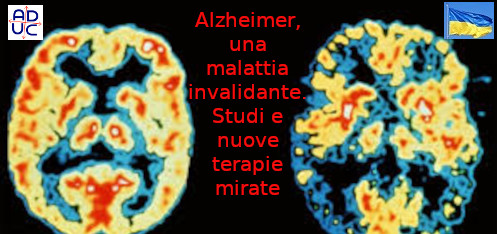82
It affects memory and cognitive functions, affects the ability to speak and think, can cause other problems including states of confusion, mood changes and space-time disorientation. It’s Alzheimer’s.
The disease was described by the German doctor Alois Alzheimer at the beginning of the last century and, today, it is a problem that involves a growing number of individuals, considering that life expectancy has increased, which globally stands at around 73 years. The disease is predominantly age-related, in fact, most of those affected are over 65 years of age. Aging, in short, plays an important role in the onset of the disease.
Research indicates that the disease is closely associated with the formation of senile plaques in the brain, formed by clusters of proteins and neuronal debris.
The brain circuits governing the induction and progression of neurodegeneration and memory impairment are not fully understood despite multiple studies involving numerous research institutions.
One question concerns the degree of vulnerability of the various parts of the brain affected by the disease. A study by the Massachusetts Institute of Technology (USA), published in the scientific journal Science Translational Medicine, has identified a group of neurons that are more receptive to the degenerative processes that lead to memory loss. This set of nerve cells forms the mammillary bodies (two reliefs resembling the breasts) and is involved in emotional-instinctive dynamics and memory. It has been found a very intense activity of some areas of the mammillary bodies compared to laboratory samples not affected by Alzheimer’s and greater damage to neurons (the functional units of the nervous system) compared to other areas.
The administration of antiepileptic drugs, which reduce neuronal hyperactivity, has led to a considerable improvement in the mnemonic capacity of the affected specimens.
Further research is needed to clarify the significance of mammillary alterations in the initial degenerative processes and subsequent connections with other parts of the brain. It could be possible to intervene on the first symptoms of the disease and to contain its progression.
To date, prevention remains: a balanced diet, physical activity, sleep, social relationships and interests are the elements that contribute to keeping our brain cells in good health.
CHI PAGA BRING
the association does not receives and is against public funding (also 5 per thousand)
Its economic strength are inscriptions and contributions donated by those who deem it useful
DONATE NOW
The disease was described by the German doctor Alois Alzheimer at the beginning of the last century and, today, it is a problem that involves a growing number of individuals, considering that life expectancy has increased, which globally stands at around 73 years. The disease is predominantly age-related, in fact, most of those affected are over 65 years of age. Aging, in short, plays an important role in the onset of the disease.
Research indicates that the disease is closely associated with the formation of senile plaques in the brain, formed by clusters of proteins and neuronal debris.
The brain circuits governing the induction and progression of neurodegeneration and memory impairment are not fully understood despite multiple studies involving numerous research institutions.
One question concerns the degree of vulnerability of the various parts of the brain affected by the disease. A study by the Massachusetts Institute of Technology (USA), published in the scientific journal Science Translational Medicine, has identified a group of neurons that are more receptive to the degenerative processes that lead to memory loss. This set of nerve cells forms the mammillary bodies (two reliefs resembling the breasts) and is involved in emotional-instinctive dynamics and memory. It has been found a very intense activity of some areas of the mammillary bodies compared to laboratory samples not affected by Alzheimer’s and greater damage to neurons (the functional units of the nervous system) compared to other areas.
The administration of antiepileptic drugs, which reduce neuronal hyperactivity, has led to a considerable improvement in the mnemonic capacity of the affected specimens.
Further research is needed to clarify the significance of mammillary alterations in the initial degenerative processes and subsequent connections with other parts of the brain. It could be possible to intervene on the first symptoms of the disease and to contain its progression.
To date, prevention remains: a balanced diet, physical activity, sleep, social relationships and interests are the elements that contribute to keeping our brain cells in good health.
(Article published in the newspaper The reason dated 12 May 2023)
the association does not receives and is against public funding (also 5 per thousand)
Its economic strength are inscriptions and contributions donated by those who deem it useful
DONATE NOW
